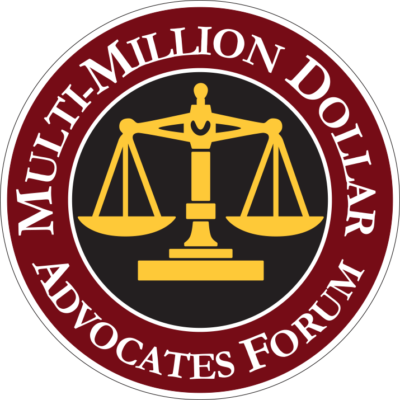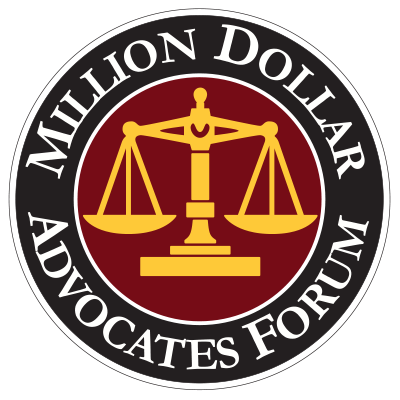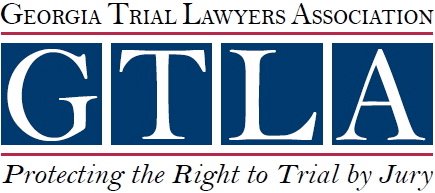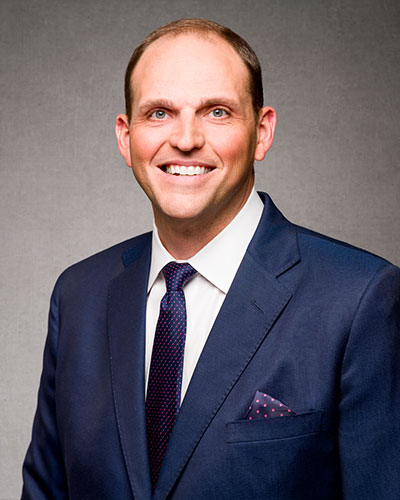At Princenthal, May & Wilson we aim to provide valuable insights into the complex world of personal injury law. As experienced attorneys focusing on personal injury cases, we understand the myriad challenges individuals face after being involved in accidents, especially those involving rideshare services like Uber or Lyft.
Today, we delve into the concept of comparative negligence and its significance in rideshare accident cases in Georgia. An experienced Uber or Lyft accident lawyer knows that the intricacies of this legal principle can significantly impact the outcome of your case and the compensation you receive.
In Georgia, comparative negligence is a crucial factor in determining liability and damages in personal injury cases, including those involving rideshare accidents. This legal doctrine acknowledges that more than one party may contribute to an accident, and it assigns fault proportionally based on each party’s degree of negligence.
When it comes to rideshare accidents, determining liability can be particularly complex. Multiple parties may be involved, including the Uber or Lyft driver, other motorists, pedestrians, or even the rideshare company itself. Each party’s actions leading up to the accident must be carefully scrutinized to assess their level of negligence — making the knowledge and navigation of an Uber or Lyft accident lawyer all the more helpful.
Rideshare accident cases can have many moving pieces, and passengers, drivers, and other motorists have been injured due to various factors such as distracted driving, reckless behavior, or vehicle malfunctions. In such situations, establishing comparative negligence becomes crucial in securing fair compensation for the injured party.
In this blog post, we’ll explore how comparative negligence operates in Georgia rideshare accident cases, the factors considered when determining fault, and the implications it may have on your ability to recover damages. Whether you’re a rideshare passenger, driver, or another motorist involved in an accident, understanding your rights and legal options is paramount.
If you or a loved one have been injured in a rideshare accident, don’t hesitate to reach out to our experienced team at Princenthal, May & Wilson for experienced legal guidance and representation. Your rights matter, and we’re here to fight for the compensation you deserve.
What are the Key Elements of a Personal Injury Case?
Whether you’ve been involved in a collision with a rideshare vehicle or another type of automobile, understanding the essential elements required to prove your case is crucial for securing the compensation you deserve. To file and win a suit, you — with the aid of your Uber or Lyft accident lawyer — will need to establish the following elements.
Duty of Care: The foundation of any personal injury claim, including car accidents, begins with establishing that the defendant owed a duty of care to the plaintiff. In the context of car accidents, all motorists have a legal obligation to operate their vehicles safely and responsibly to prevent harm to others on the road — including those driving for rideshare services.
Breach of Duty: Once duty of care is established, the plaintiff must demonstrate that the defendant breached this duty through negligent or reckless behavior. This could include actions such as speeding, distracted driving, driving under the influence of alcohol or drugs, or failing to obey traffic laws.
Causation: Causation is a critical element that links the defendant’s breach of duty to the plaintiff’s injuries. The plaintiff must prove that the defendant’s negligent actions directly caused or substantially contributed to the accident and resulting harm.
Damages: Finally, to pursue compensation in a car accident personal injury claim, the plaintiff must have suffered actual damages, such as medical expenses, lost wages, pain and suffering, and property damage.
The Role of Negligence in Rideshare Accidents
In recent years, rideshare services like Uber and Lyft have become increasingly prevalent on Georgia’s roadways. However, with the rise of rideshare vehicles, the complexities surrounding liability and negligence in accidents involving these vehicles have also grown.
An Uber or Lyft accident lawyer knows firsthand how determining negligence in rideshare accidents can be particularly challenging. Rideshare drivers are considered independent contractors, and liability may be divided among multiple parties, including the driver, the rideshare company, and other motorists involved in the accident.
In rideshare accident personal injury lawsuits, negligence is assessed based on the same principles outlined above: duty of care, breach of duty, causation, and damages. However, unique factors such as the driver’s employment status, the rideshare company’s policies, and the specifics of the accident must also be considered.
For example, if an Uber or Lyft driver causes an accident while transporting a passenger, questions may arise regarding whether the driver was actively engaged in a ride at the time of the collision and whether the rideshare company bears any responsibility for the driver’s actions.
If you’ve been injured in a car accident, whether involving a rideshare vehicle or another type of automobile, it’s essential to understand the required elements of a personal injury claim and seek legal representation from a qualified attorney. Don’t hesitate to contact our team at Princenthal, May & Wilson for a free consultation. We’re here to help you navigate the legal process and pursue the justice and compensation you deserve.
What is Comparative Negligence?
Comparative negligence is a legal doctrine used in personal injury cases to allocate fault and determine the extent to which each party involved in an accident contributed to the incident. Unlike some states that follow a strict contributory negligence rule, Georgia follows a modified comparative negligence system.
Under Georgia’s modified comparative negligence law — also known as proportionate responsibility — the court considers the negligence of each party involved in an accident and assigns liability accordingly. Specifically, Georgia adheres to a modified form of comparative negligence known as the 50% rule.
The 50% Rule Explained
According to the 50% rule, a plaintiff can only recover damages if their degree of fault is less than 50%. If the plaintiff is found to be 50% or more at fault for the accident, they are barred from recovering any compensation. However, if the plaintiff is found to be less than 50% at fault, their damages are reduced in proportion to their degree of negligence.
For example, if a rideshare passenger is injured in a collision involving a Lyft vehicle and is found to be 30% at fault for not wearing a seatbelt, their total damages would be reduced by 30%. If the total damages awarded were $10,000, the passenger would receive $7,000 after accounting for their comparative negligence.
Comparative Negligence in Rideshare Accidents
Rideshare accidents present unique challenges when it comes to determining fault and assessing comparative negligence. These cases often involve multiple parties, including the rideshare driver, other motorists, pedestrians, and the rideshare company itself.
An experienced Uber or Lyft accident lawyer may have seen cases where fault was disputed among various parties involved in the accident. Factors such as distracted driving, speeding, failure to yield, and other forms of negligence may all contribute to a rideshare accident. Additionally, questions may arise regarding the rideshare company’s liability for the actions of its drivers and the adequacy of its safety protocols.
In rideshare accident cases, it’s essential to conduct a thorough investigation to gather evidence and determine the extent of each party’s negligence. This may involve obtaining witness statements, reviewing police reports, analyzing driver logs and electronic records, and consulting with accident reconstruction experts.




What Kind of Damages Can I Receive from my Rideshare Accident Case?
If you’ve been injured in a rideshare accident in Georgia, you may be entitled to compensation for various types of damages.
Medical Expenses: Compensation for medical expenses may include reimbursement for hospital bills, surgical procedures, doctor’s appointments, prescription medications, physical therapy, and other necessary medical treatments related to your injuries.
Lost Wages and Loss of Earning Capacity: If your injuries prevent you from returning to work or result in a reduction in your earning capacity, you may be entitled to compensation for lost wages and loss of future earning capacity. This includes not only the income you’ve already lost due to missed work but also any future income you’re expected to lose as a result of your injuries.
Pain and Suffering: Pain and suffering damages are intended to compensate you for the physical and emotional pain, discomfort, and distress caused by your injuries. This may include chronic pain, mental anguish, emotional trauma, and loss of enjoyment of life resulting from the accident and your subsequent injuries.
Property Damage: If your personal property was damaged in the rideshare accident, you may be entitled to compensation for the cost of repairs or replacement.
Loss of Consortium: In some cases, the spouse or family members of a rideshare accident victim may be entitled to compensation for loss of consortium. This refers to the loss of companionship, care, affection, and support resulting from the victim’s injuries.
Punitive Damages: In cases involving particularly egregious conduct, such as drunk driving or reckless behavior, the court may award punitive damages in addition to compensatory damages. Punitive damages are intended to punish the defendant and deter similar misconduct in the future.
Fighting for You
Navigating the complexities of rideshare accident personal injury lawsuits can be made easier with a knowledgeable and experienced Uber or Lyft accident lawyer. At Princenthal, May & Wilson, we have a proven track record of success in helping accident victims recover the full and fair compensation they deserve for their injuries and losses.
If you’ve been injured in a rideshare accident in Georgia, don’t hesitate to contact our team for a free consultation. We’ll evaluate the details of your case, explain your legal rights and options, and work tirelessly to pursue the maximum compensation available to you. Your recovery is our top priority, and we’re here to fight for justice on your behalf.
Hiring a Personal Injury Attorney How Long Will a Personal Injury Case Take?Related Videos





